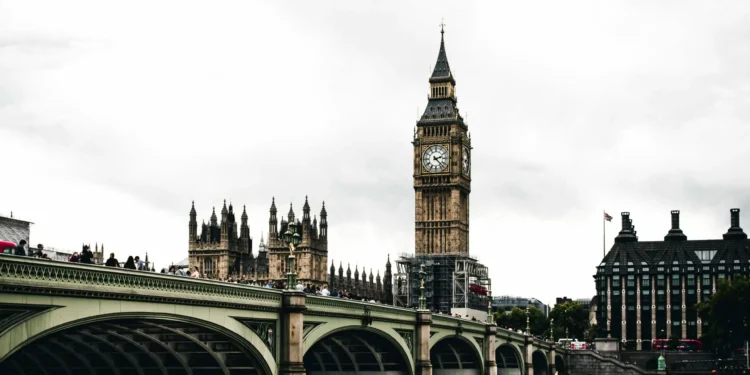Deciphering the Mystery of the Working-Class Voter: A View From Britain
Class. A term that holds great significance in societies across the world, but one that has evolved and transformed over time. In today’s world, the definition of class is constantly up for debate, and nowhere is this more evident than in Britain. With the recent political developments like Brexit and the rise of populist leaders, the question of class has once again come to the forefront. How is class defined in Britain today? And what impact does it have on the country’s politics? Let’s dissect this mystery and gain a deeper understanding of the working-class voter in Britain.
In the past, class was largely associated with one’s occupation and income. It was a rigid and hierarchical system, with the upper class holding the reins of power and the working class struggling to make ends meet. However, in the current times, the traditional notions of class have been challenged and the boundaries have become blurred. The rise of the middle class, the decline of traditional industries, and the increasing diversity in the workforce have all contributed to this transformation.
Today, social class is not solely based on economic factors but also includes elements like education, cultural tastes, and social connections. The growing middle class, with its higher levels of education and income, has become a significant force in British society. They are often referred to as the ‘aspirational class’ – individuals who have moved up the social ladder and hold onto a strong desire for upward mobility. This group is highly diverse, with people from different ethnicities, backgrounds, and political beliefs. They no longer fit into a specific class category and have a significant influence on the country’s politics.
On the other hand, the traditional working class still exists, but their role in society has changed. With the decline of manufacturing jobs and the rise of the service industry, the working class has also undergone a transformation. They are no longer a homogenous group, and their struggles and aspirations vary widely. However, they still play a crucial role in the political landscape of Britain. The working class has often been associated with the Labour Party, the traditional party of the working people. However, in recent years, the working class has shown a growing trend of switching their allegiance to other parties, especially the Conservative Party. This shift has left many puzzled and has become a topic of heated debates among political analysts.
So, why are the working-class voters moving away from the party that was once their champion? One of the main reasons is the changing nature of work and the decline of traditional industries that provided stability and job security to the working class. As the economy becomes increasingly globalized, the working class feels left behind and disconnected from the political elite who they believe do not understand their struggles. This feeling of alienation and disillusionment has led them to seek alternatives, and the Conservative Party, with its promises of a strong economy and a return to traditional values, has been successful in attracting them.
Moreover, the rise of populist movements has also played a significant role in changing the dynamics of class in Britain. The Brexit referendum, in particular, highlighted the division between the working class and the middle class. While the working class saw it as an opportunity to regain control from the elites and bring back jobs and prosperity, the middle class saw it as a risk to their economic and social status. The result of the referendum was a clear divide between the two classes, with the working class voting overwhelmingly in favor of leave and the middle class voting to remain.
Hence, it is evident that the issue of class has become deeply intertwined with politics in Britain. It has become a defining factor in how individuals identify themselves and their political choices. However, it is essential to understand that class is not the sole determinant of one’s beliefs and behaviors. Class intersects with other factors like gender, ethnicity, and age, which shape an individual’s perspective. Therefore, it is not surprising to see the working class, with its diverse composition, showing a range of political beliefs and behaviors.
In conclusion, the concept of class in Britain is constantly evolving, and the lines between the traditional working class and the emerging middle class have become blurred. The rise of the middle class, the changing nature of work, and the influence of populist movements have all contributed to this transformation. However, one thing remains certain – class continues to play a pivotal role in the country’s politics. To address the concerns and needs of the working-class voters, it is





